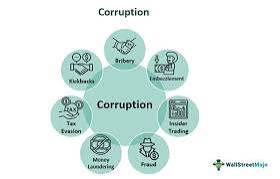Corruption in Ghana is a widespread problem that poses a significant challenge to the country's development and governance. Despite efforts to combat corruption, it continues to undermine public trust, distort decision-making processes, and impede progress in key sectors such as healthcare, education, and infrastructure. Corruption is a form of dishonesty or a criminal offense that is undertaken by a person or an organization that is entrusted in a position of authority to acquire illicit benefits or abuse power for one gain.
One of the main areas where corruption is prevalent in Ghana is in the public sector, with reports of bribery, embezzlement, and nepotism involving government officials and civil servants. This kind of corruption not only erodes public trust in the government but also diverts public resources away from essential services, leading to inefficiency and inequality.
The private sector in Ghana is also vulnerable to corruption, with businesses engaging in corrupt practices such as fraud, kickbacks, and bid-rigging to gain a competitive advantage. This kind of corruption not only harms the business environment but also hinders economic growth and foreign investment.
The judiciary and law enforcement agencies in Ghana are not immune to corruption either, with reports of judicial bribery, police extortion, and political interference compromising the rule of law and undermining justice and accountability.
Despite these challenges, Ghana has taken steps to address corruption, including enacting anti-corruption laws, establishing anti-corruption agencies such as the Commission on Human Rights and Administrative Justice (CHRAJ) and the Economic and Organized Crime Office (EOCO), and implementing initiatives to promote transparency and accountability.
However, more needs to be done to tackle the root causes of corruption in Ghana, including strengthening institutions, promoting a culture of integrity, and empowering citizens to hold their leaders accountable. By working together to address corruption, Ghana can realize its full potential and build a more prosperous and equitable society for all its citizens.



No comments yet
Be the first to share your thoughts!